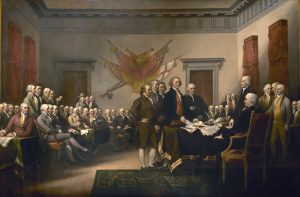
Check out our new film The Confrontation Clause: Crawford v. Washington. You can find the whole film streaming online for free at the Annenberg Classroom website. The film tells the story of how we got the right to confront our accusers in court (and what happened to one famous person who didn’t have that right). But what happens when your accuser isn’t a person but a taped confession?





